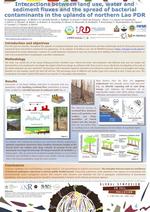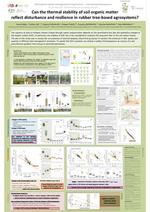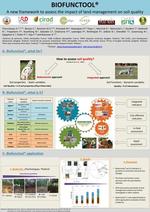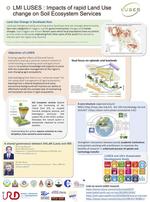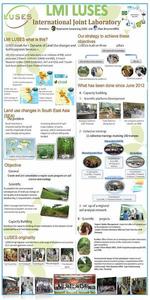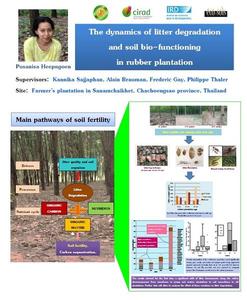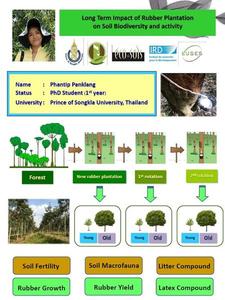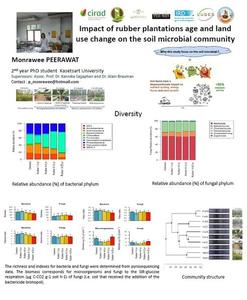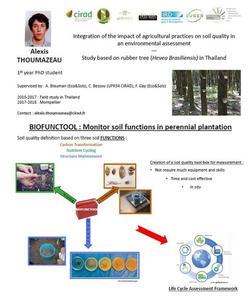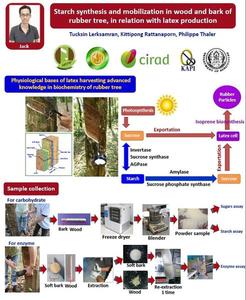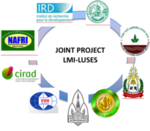The ECOBIO training
Summary
- Presentation
- How to apply
- Result of Selection Process
Assessment of the physiological status of plants Application of ecophysiological and biochemical tools
Download
Objectives
Be able to use the main ecophysiological and biochemical technics used to assess the physiological status of plants. Be able to assess the response of plants to abiotic stress from measured data.
Targeted audience
MSc & PhD students, researchers and technicians with basic knowledge in plant physiology or agronomy, breeders or agronomists wishing to gain knowledge on diagnostic tools on the physiological status of plants.
Method
The training will be based on case studies on perennial species (especially rubber tree) but it will also propose some work with annual plants like rice. Water stress will be addressed more particularly. After being introduced to the theory and some equipment, the participants will perform ecophysiolgical and biochemical measurements on plants grown in greenhouse and in the field. Analysis and interpretation of the collected data will focus on understanding the mechanisms involved in stress response.
Program
Six topics will be address theoretically first, then through practical works.
Those six topics are:
Gas exchange, structure of the canopy and carbon balance: at the crop level (Beer law…), at the organ level (stomatal resistance, photosynthesis, respiration…), diagnostic tools.
Water balance and water stress: atmospheric demand, soil water status, plant water status and its regulation, diagnostic tools.
Plant components : major components, main functions, critical threshold, mass balance, energy content.
Biochemical markers of stress : oxidative stress, defense mechanisms at cell level, diagnostic tools.
Data acquisition: environmental variables (micro-climate, soil), plant variables, instruments and software.
Data analysis and interpretation: assessment of the physiological status of the plant, usefulness for agronomist and breeders.
LMI LUSES Posters
Presentation of the ECOFILTER Team at the Global Symposium on Soil Pollution (GSOP18), FAO, Rome, 2-4 May 2018
Poster of the BIODIV TREE team presented at the SOM management conference held in Braunsweig on the 30 and 31 of May
Poster of the BIODIV TREE team presented at the SOM management conference held in Braunsweig on the 30 and 31 of May
Synopsis of LUSES 2017-2019
- LDD-IRD a long history of scientific cooperation
- Impact of Rubber Tree Plantation on Soil Biological Diversity
- LDD-LMI LUSES Platform of Microbiology
- LMI LUSES presentation
- PCR LDD-LMI LUSES Platform
- Laboratory guide: hygiene and safety in English
- Laboratory guide: hygiene and safety in Thai
PhDs students' scientific posters
The dynamics of litter degradation and Soil-bio functioning in Rubber plantation : Pusanisa Heepngoen
Long term impact of Rubber Plantation on Soil biodiversity and Activity: Phantip Panklang
Impact of Rubber Plantation age and Land use change on the soil microbial community : Monrawee
Integration of the impact of agricultural practices on soil quality in an environmental assessment : Alexis
Starch Synthesis and Mobilization in wood and bark of rubber tree, in relation with Latex production : Tuksin







